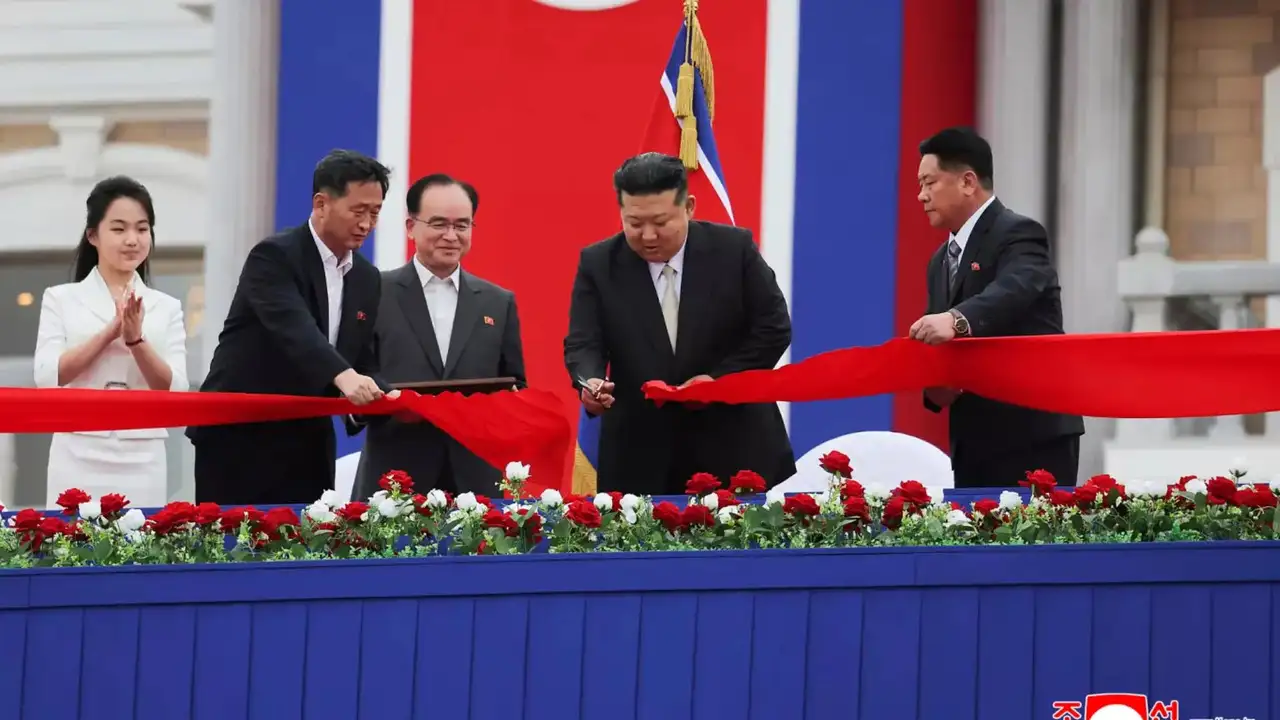By Samannay Biswas
North Korea, one of the world’s most reclusive and tightly controlled regimes, opened its grandest tourism venture yet on 24 June 2025 with the ribbon-cutting of the Kalma Coastal Tourist Zone, a massive beach resort on the country’s eastern seaboard. Supreme Leader Kim Jong Un himself, accompanied by his wife and daughter. A waterpark-laced, hotel-filled complex with room for 20,000 guests. In Wonsan, a city poised to become a tourism and economic hub. To promote Kim’s “people-first” narrative and attempt an economic stimulus through tourism. Despite sanctions and limited access, the state is promoting Kalma as a showcase of modern socialist development. According to a CNN report, the resort includes waterparks, high-rise hotels, and a new train station. Though the government claims the resort will open to domestic tourists from 1 July, sceptics suggest the main beneficiaries will be party elites and foreign allies like Russia. Notably, the Russian ambassador was the only foreign diplomat at the launch. The resort neighbours an international airport, hinting at ambitions to attract foreign currency through tourism, especially from Russia. Vladivostok-based Vostok Intur is already promoting $1,840 tour packages. The opening comes despite North Korea’s struggling economy and reports of widespread malnourishment. In 2024, UN Human Rights Chief Volker Turk described life in North Korea as a “stifling, claustrophobic environment.” “Wonsan-Kalma is open to just North Koreans for now, but we should not be surprised to see Russians at the resort in the not-too-distant future,” said Rachel Minyoung Lee of the Stimson Center CNN reported. “More broadly, the opening of a major beach resort like Wonsan-Kalma helps to reinforce the state media narrative of Kim’s people-first policy.” The Kalma project, first announced in 2013, was delayed by sanctions and the pandemic. Yet, Kim Jong Un made at least seven visits to the site, insisting on “world-class” standards and giving “on-the-spot guidance.” The regime sees the resort as a legacy project, tying together family symbolism and national pride. While some recall the Mount Kumgang initiative from the 1990s, which collapsed after a tragic 2008 shooting incident, few believe Kalma will attract widespread international tourism. “Wonsan-Kalma is hardly a tourist hotspot,” said Dr Edward Howell from the University of Oxford. “Whether this resort will provide Kim Jong Un with his much-needed economic gain in the long term remains to be seen.”
